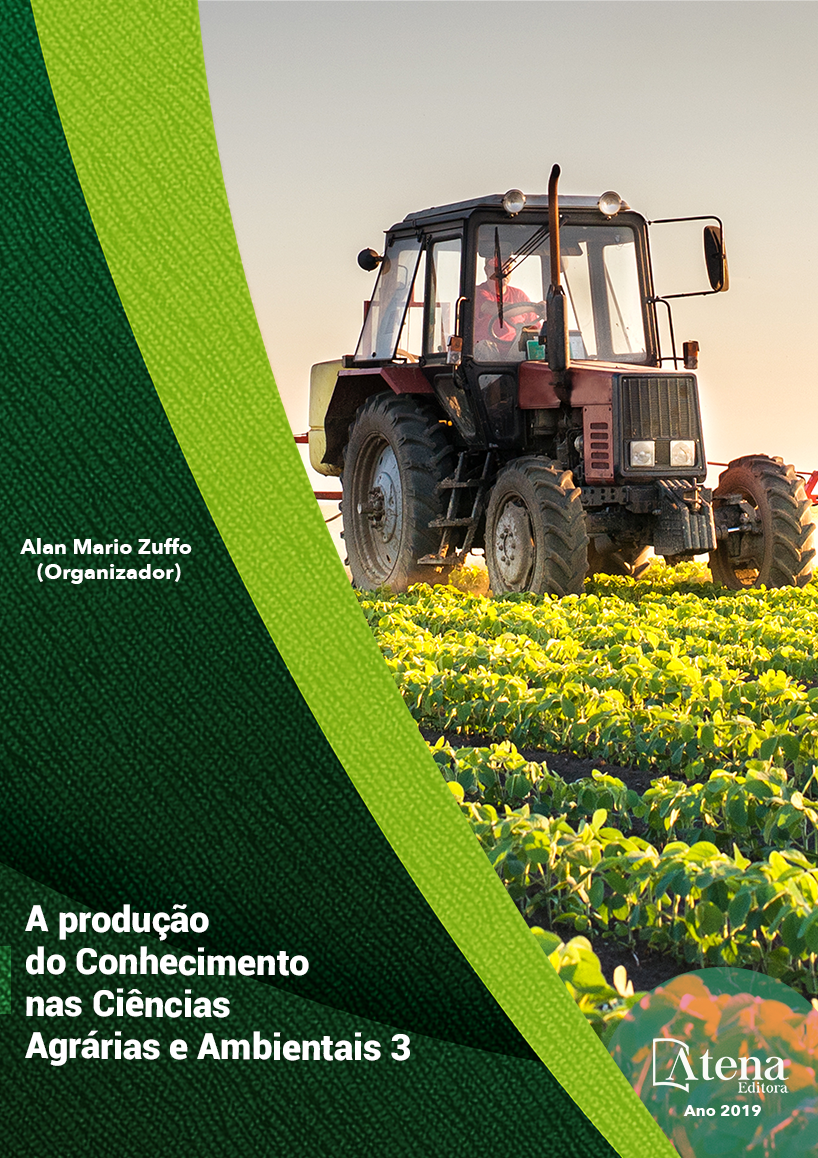
EFEITO DA CO-INOCULAÇÃO ASSOCIADA A DIFERENTES DOSES DE ADUBAÇÃO NITROGENADA NO CRESCIMENTO VEGETATIVO DO FEIJOEIRO
O cultivo do feijoeiro caracterizase
como uma das mais importantes atividades
agrícolas do Brasil, sendo o manejo da cultura
fundamental para o aumento da produtividade.
Objetivou-se com este trabalho avaliar o
efeito da co-inoculação com Rhizobium
tropici e Azospirillum brasilense associada a
diferentes doses de adubação nitrogenada
sobre crescimento vegetativo do feijoeiro
em condições de campo. O experimento foi
delineado em blocos casualizados com três
repetições e sete tratamentos, sendo o T-1
(testemunha), o T-2 (fertilização com 20 kg ha-1
de N em plantio e 20 kg ha-1 de N em cobertura)
e os T-3 a T-7 com uso de variações entre coinoculação
e doses de nitrogênio entre o plantio
e a cobertura. Ao fim do experimento avaliou-se
a altura da planta, diâmetro da copa, diâmetro
do caule, número de folhas e área foliar. Os
dados foram submetidos à análise de variância
e as médias submetidas ao teste Scott-knott
em nível de 5% de probabilidade. Observouse
que a técnica de co-inoculação favoreceu o
crescimento vegetativo da cultura, se igualando
em alguns aspectos a adubação convencional
utilizada pelo produtor.
EFEITO DA CO-INOCULAÇÃO ASSOCIADA A DIFERENTES DOSES DE ADUBAÇÃO NITROGENADA NO CRESCIMENTO VEGETATIVO DO FEIJOEIRO
-
DOI: 10.22533/at.ed.8691926043
-
Palavras-chave: Fixação biológica de nitrogênio, Phaseolus vulgaris L., Rhizobium tropici, Azospirillum brasilense.
-
Keywords: Biological fixation of nitrogen, Phaseolus vulgaris L., Rhizobium tropici, Azospirillum brasilense.
-
Abstract:
Bean cultivation is characterized
as one of the most important agricultural activities in Brazil, and crop management is
fundamental for increasing productivity. The objective of this work was to evaluate the
effect of co-inoculation with Rhizobium tropici and Azospirillum brasilense associated
with different doses of nitrogen fertilization on vegetative growth of common bean
under field conditions. The experiment was designed in a randomized block design
with three replicates and seven treatments, with T-1 (control), T-2 (fertilization with 20
kg ha-1 of N in planting and 20 kg ha-1 of N in cover) and T-3 to T-7 with use of variations
between co-inoculation and nitrogen rates between planting and cover. At the end of
the experiment the plant height, crown diameter, stem diameter, number of leaves and
leaf area were evaluated. Data were submitted to analysis of variance and the means
submitted to the Scott-knott test at a 5% probability level. It was observed that the coinoculation
technique favored the vegetative growth of the crop, in some respects the
conventional fertilization used by the producer was similar.
-
Número de páginas: 15
- Laís Gertrudes Fontana Silva
- Jairo Câmara de Souza
- Bianca de Barros
- Hellysa Gabryella Rubin Felberg
- Marta Cristina Teixeira Leite
- Robson Ferreira de Almeida
- Evandro Chaves de Oliveira


